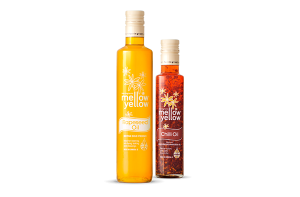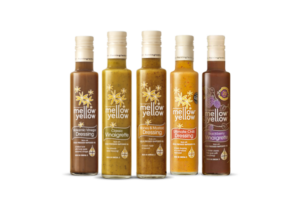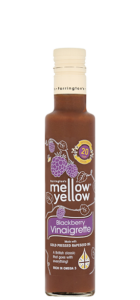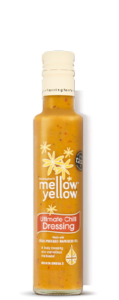Harvest finished in the second week of September, it was a rather drawn out event in the end, but on the whole went well. The new combine was the highlight of the year, a great machine that will hopefully be serving us well for the next decade. However, being a farmer, there is always something to worry about and this year it is the prices. The collapse in milk prices over the last year has been well published; but now it is hitting home with me of the 30% reduction in grain prices also, with no immediate prospect of a recovery on the horizon.
To take my mind off impending gloom on the current viability of British agriculture, I was delighted that our work in Farrington Oils has come to the attention of some influential people, like His Royal Highness.
A couple of weeks ago, I had a mysterious phone call to say we had been selected for a royal visit, to the home of Farrington’s Mellow Yellow “if you are interested?” Of course, we were interested, but the catch was it all had to be arranged within a few days. The timing was perfect for us as we have been investing in the business, hence we had something to talk about and see.
We hastily invited local councillors, colleagues, and customers to the event, with everyone being asked to keep it quiet. The drivers and armed police came out to check everything were up to scratch, with no security issues. Floors were scrubbed, equipment polished, whilst my mother and Eli made some Mellow Yellow inspired cakes and made sure we had enough cups and saucers to hand.
It also allowed us to exert some pressure on the local engineers to finish off the work in time for the occasion, it being finally finished the evening beforehand. We have installed more oil presses, increasing our capacity by two-thirds, along with two impressive oil storage tanks, increasing capacity by 400%. On the morning we busily gave the new equipment a final check-over before starting it working, nervously checking for leaks and issues, before getting changed into suit and tie.
His Royal Highness the Duke of Gloucester came to visit, spending time touring our factory and meeting the team. He bottled his own oil, before enjoying refreshments, chatting to our guests. It was a great event, I was very proud to show off our team at Farrington Oils. I was delighted to talk about our investment in equipment, a new staff position to look after national sales and our two latest export customers in the Middle East and Asia.
Following the visit, everyone was really pleased with a job well done, although exhausted. It is fantastic for company moral to be able to do something different and exciting occasionally; to invite customers and other guests to show them first hand what we do and, to be proud of our village and our county.
As September draws to a close, we are in the final stages of the busy workload. Harvest seems a distant memory, the rapeseed is all planted and growing well, although a little rain wouldn’t go a miss; now it is just the wheat that needs planting. So the question is to plant wheat or not to plant wheat?
Like many of the jobs on an arable farm, I don’t have the luxury of a crystal ball to see what the weather is going to do over the next few weeks. September has to date been the driest on record. The lack of rain has not allowed much blackgrass and other weed seeds to germinate and grow, which ideally I would like to have a chance to kill off with a weed killer before we start planting wheat. If we drill too early, these weed seeds will germinate at the same time as the crop and cause problems for the next season. If we wait too long and the weather breaks, we may struggle to get the crops into good soil conditions, or at all. The plan is to encourage the weeds to grow quickly by giving the soil a gentle rake, kill off the weeds before planting some fields whilst the conditions are favourable, then wait as long as I dare before planting the remainder. In other words, I’m hedging my bets in trying to make the right decision.
I read recently that Richard Branson has given up eating beef because of his concerns over greenhouse gas emissions produced by cattle. He is, of course, correct – cows produce methane (from flatulence), however, Mr. Branson’s concerns are more about intensively produced beef in South America where cattle are raised in feed lots consuming huge resources to produce beef for North America. It is a completely different story in Britain and other similar countries, where beef is reared less intensively. Whilst it is true cows do flatualte because they are ruminant animals, meaning they eat grass, something we humans are not able to do. If we all stopped eating beef, what would happen to our green and pleasant land? Perhaps we could plough it all up to grow more crops to feed a vegetarian world, but there again that would cause other environmental issues, including the emission of greenhouse gases.
Sometimes, out of good intensions and trying to make the right decision, people can get a little side tracked without seeing the bigger picture. Besides, did I mention that air travel is a huge cause of greenhouse gas emissions? What would Mr. Branson say about that?

 Oils
Oils Rapeseed Oil
Rapeseed Oil Chili Oil
Chili Oil Dressings
Dressings Blackberry Vinaigrette
Blackberry Vinaigrette Classic Vinaigrette
Classic Vinaigrette Balsamic Dressing
Balsamic Dressing Honey & Mustard
Honey & Mustard Ultimate Chilli Dressing
Ultimate Chilli Dressing